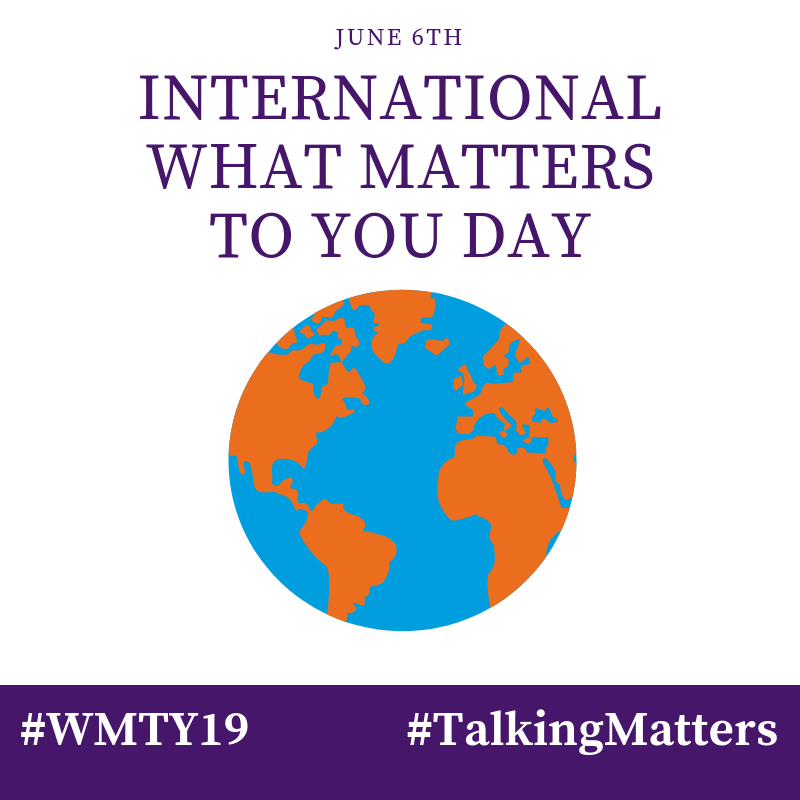There is no denying that when it comes to caring for individuals there is great power in shifting from a typical “What’s the matter with you?” clinical-based approach to a combined “What matters to you?” values-based approach to care. While the former question puts the person’s health status into context, the latter opens up the door for meaningful and possibly transformational conversations between an individual and their caretaker.
This year, on “What Matters Most to You?” Day (Thursday, June 6), we invite you to join us as we ask the people that matter most to us, what matters most to them. This international day of celebration aims to encourage and support more meaningful conversations between caregivers who provide health and social care (including family caregivers) and those they are or will care for in the future. Below are a variety of resources that emphasize the importance of individuals expressing what matters most to them. From videos to toolkits, these materials are meant to inspire individuals to not only talk about what matters to them but to also prompt them to ask those they care for to express their wishes. We encourage you to use them as you participate in “What Matters to You?” Day!
Talking with your loved ones openly and honestly, before a medical crisis happens, gives everyone a shared understanding about what matters most to you at the end of life. You can use this Starter Kit whether you are getting ready to tell someone else what you want, or you want to help someone else get ready to share their wishes.
After you’ve had the conversation with your loved ones, the next step is talking to your doctor or nurse about your wishes. Don’t wait for a medical crisis; talking with your doctor or nurse now makes it easier to make medical decisions when the time comes.
Choosing a healthcare proxy/agent is one of the most important decisions you’ll ever make. With that, it’s crucial that you select the right person who will not only listen to your end-of-life wishes but will also ensure that they’re respected if there ever comes a time when you cannot advocate for yourself. This short, humorous video captures some things to consider when you’re choosing your advocate.
We get it. Having conversations about end-of-life can be daunting. What do you say? How do you break the ice? Well, with a little bit of practice, you can find just the right words to start the conversation. Click the link above to watch a video that reminds us that “everyone…ya know…dies…” may not be the perfect words.
This new toolkit is intended to help clinicians address some of the challenges of engaging with patients and families in end-of-life care conversations over time. The four cases present patients with diverse backgrounds and experiences at different points of illness, as well as diverse clinicians and care settings. Each case describes the progression of the patient’s illness and outlines key considerations for clinicians to engage the patient and family in discussions about what matters most to the patient at the end of life.
This toolkit is geared towards multidisciplinary care teams and provides actionable steps and guidance to ensure that every older adult’s health outcome goals and care preferences are understood, documented, and integrated into their care by their entire health care team.
Over the years, we’ve learned that one of the most powerful ways someone can express what matters most to them is through a letter. That’s why TCP has launched a campaign designed to encourage people from all over to write a letter to their nearest and dearest about how they want to live at the end of their lives. We’ll be collecting as many letters as we can and hope to share different examples with you as we receive them. If you’re willing to have us share yours, please send it our way (conversationproject@ihi.org). The first ten submissions will receive a TCP Talking Matters pin.
Additional resources can be found on our Get Involved page. You can also stay up to date about our latest, resources, news and events by signing up for our monthly newsletter.

